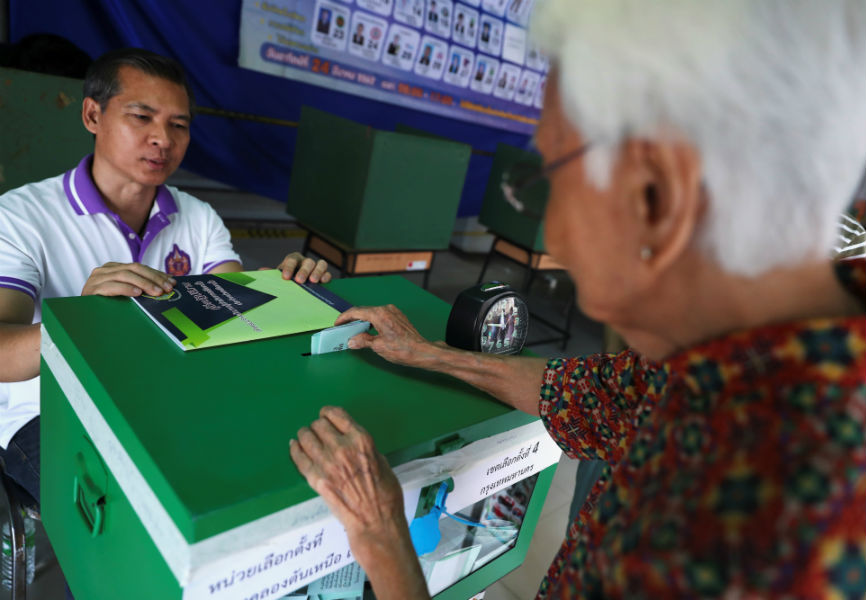What Happened This Week:
The Thai people head to the polls this Sunday for the
first time since the country's military seized power in a 2014 coup. It's the first general election since 2011.
Why It Matters:
For years now, the country's real political power has lain in the hands of the military, backed by the country's monarchy. The country maintained a democratic façade over the years by holding elections from time to time leading to the election of political leaders with varying degrees of actual power, often heading weak coalition governments.
What Happens Next:
Credible polls are hard to come by and given the dozens of parties in play, the political math is hard to work out on this side of elections; it doesn't look likely that any one party will command an absolute majority in the house.
But beyond that, it's looking like the military junta will end up with a prime minister it approves of, either by pro-junta parties securing 126 seats or, in case an anti-military coalition gets cobbled together, by using the courts to rejigger the numbers in its favor through disqualifications. There are already cases pending against Future Forward and its leaders accusing them of spreading “fake news”, and the indictments are scheduled to come a couple of days after the election, which gives the military time to survey the political landscape before deciding what course of action to take.
There is a long shot that anti-junta parties perform well enough that the King orders the military to let the new government stand — but in any case, the military last year unveiled a National Strategy document intended to act as a blueprint for the country for the next 20 years. Should any Thai government deviate too substantially from the plan, they can be removed from office and even have their leaders face jail time. So significant political change isn't coming to Thailand anytime soon.
The Key Number That Explains It:
376: the magic number of seats that anti-junta parties need to win together in the 500-seat House of Representatives in order to offset the 250 military-appointed senate votes and elect the country's next prime minister.
The One Thing to Read About It:
Not every country can make military juntas work. A look at how Thailand has
managed the feat thus far, via The Atlantic.
The One Major Misconception About It:
That because the Thai military has been in power for so long and has stacked the rules so overwhelmingly in their favor, there's no real drama here. The military still needs to make sure that social unrest doesn't spiral out of control following elections. Much depends on how the Thai people respond to the results and the army's perceived intervention into those results, if any. In other words, even authoritarian politics pack plenty of drama these days.
The One Thing to Say About It:
Of all the political systems out there, there's a case to be made that “democratically-elected” juntas are among the worst—combining some of the worst elements of authoritarianism (limited accountability, repression of political speech and democratic participation) with some of the worst elements of democracy (unstable coalition politics, perpetual indecision and horse-jockeying). Still, it's better than the “murderous and genocidal” junta varieties at least.
This article originally appeared on Time.com.

 A voter casts their ballot for the general election at a polling station in Bangkok, Thailand. REUTERS.
A voter casts their ballot for the general election at a polling station in Bangkok, Thailand. REUTERS.
